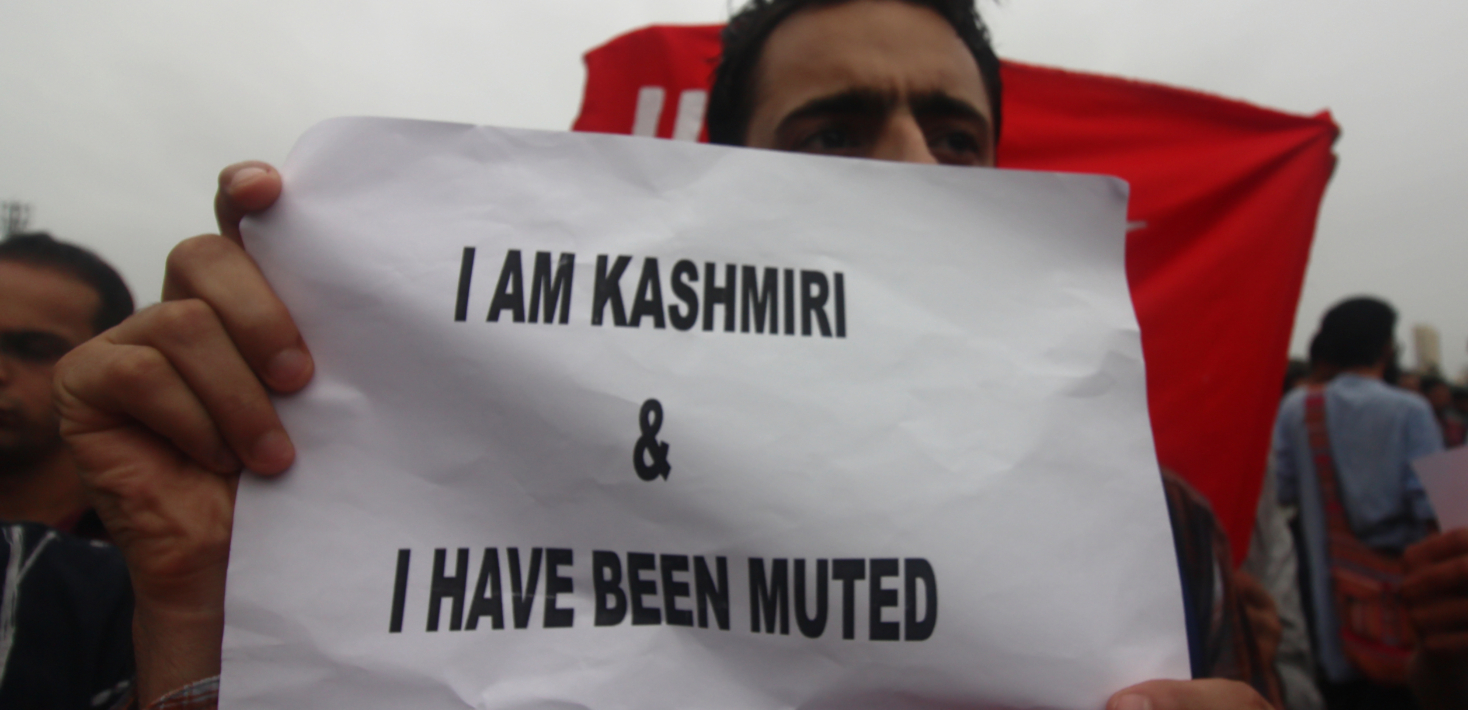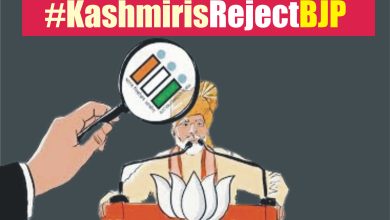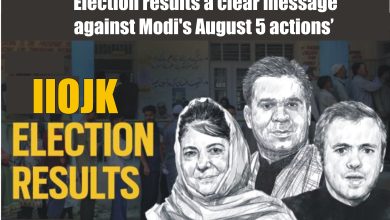Repression mars first polls held in IIOJK after Article 370 debacle: Amnesty
 Srinagar: First phase of so-called elections for Indian illegally occupied Jammu and assembly Kashmir held on Wednesday, amid widespread reports of repression, with Amnesty International calling on New Delhi to stop detentions of dissenters.
Srinagar: First phase of so-called elections for Indian illegally occupied Jammu and assembly Kashmir held on Wednesday, amid widespread reports of repression, with Amnesty International calling on New Delhi to stop detentions of dissenters.
According to Kashmir Media Service, Amnesty International’s Aakar Patel, chair of the board at Amnesty India, in a statement said, “Indian authorities must stop using restrictive travel bans and arbitrary detentions under the country’s stringent anti-terror laws to intimidate critical dissenting voices from speaking out on Jammu and Kashmir”.
These are also the first elections being held in the territory following the revocation of its special status by the Modi government in 2019.
“The authorities’ escalating repression of human rights after India revoked the special autonomous status of the region has resulted in arbitrary detentions,” it said.
Amnesty referred to passports being revoked, the creation of opaque ‘no flying lists’, the denial of entry into India and arbitrary cancellations of Overseas Citizenship of India status of those with Indian and non-Indian citizenship speaking out against the repression.
“Anyone daring to speak out — whether to criticise the government or to stand up for human rights — faces a clampdown on their rights to freedom of expression and association and are unable to move freely within and outside the country,” the statement added.
“The Indian authorities must end their campaign of harassment and intimidation against dissenting voices.”
Since the abrogation of Article 370 in 2019, “we have verified the cases of at least five individuals… who have been prevented from travelling abroad or travelling into India, despite having the requisite travel documents,” the AI said.
New Delhi continues to misuse the draconian Public Safety Act, which allows authorities to arbitrarily detain people without charge or trial, and the Unlawful Activities (Prevention) Act (UAPA) to carry out arbitrary detentions.
Amnesty documented two cases of critics facing passport revocation and one case of inordinate delays in issuance of passports.
Masarrat Zahra, a Kashmiri photojournalist, has found herself in a state of limbo after her passport was revoked while she was pursuing education in the US.
“I cannot leave the United States, nor can I return to India. I’ve had to self-censor my thoughts, avoiding anything that might raise attention on social media,” Zahra said.
Waheed Para, a political leader associated with the opposition Jammu & Kashmir People’s Democratic Party (PDP), was accused by the National Investigation Agency of being a “threat to the security of the state”, and had his passport revoked in 2023 before he could travel to the US to start a fellowship.
Nitasha Kaul is a British-Indian professor of politics, who has testified about the human rights situation in India-held Kashmir before the US House Committee on Foreign Affairs. She holds a UK passport, but on Feb 23, she was denied entry to India.
In June, Indian authorities arrested the ex-president of the Jammu & Kashmir Court Bar Association, Mian Abdul Qayoom who had been critical about human rights violations and the abrogation of Article 370. In July 2024, they arrested three more lawyers.
Data published by the National Crime Record Bureau in 2022 shows that nearly 37 per cent of UAPA cases all over India were registered in Indian occupied Jammu & Kashmir.
Khurram Parvez, coordinator of Jammu & Kashmir Coalition of Civil Society, and journalist Irfan Mehraj continue to be detained since 2021 and 2023, respectively.
Since 5 August 2019, the Indian authorities have also cracked down on
government officials in Jammu & Kashmir for allegedly holding views “prejudicial to the interests of the security of the state” or being related in whichever capacity to people who were once militants. According to media reports, at least 40 government officials have been terminated from their services without giving a reasonable opportunity to the officials to appeal or challenge such termination.
In a further threat to human rights, the lieutenant governor of occupied Jammu and Kashmir was recently given absolute control over the jurisdiction of governance including the local administrative officials, prisons, prosecutions and law offices.
“The first step to ending the repression in [occupie] Jammu and Kashmir is to immediately release all those detained under the Public Safety Act and Unlawful Activities (Prevention) Act for merely exercising their right to freedom of expression,” said Aakar Patel.







